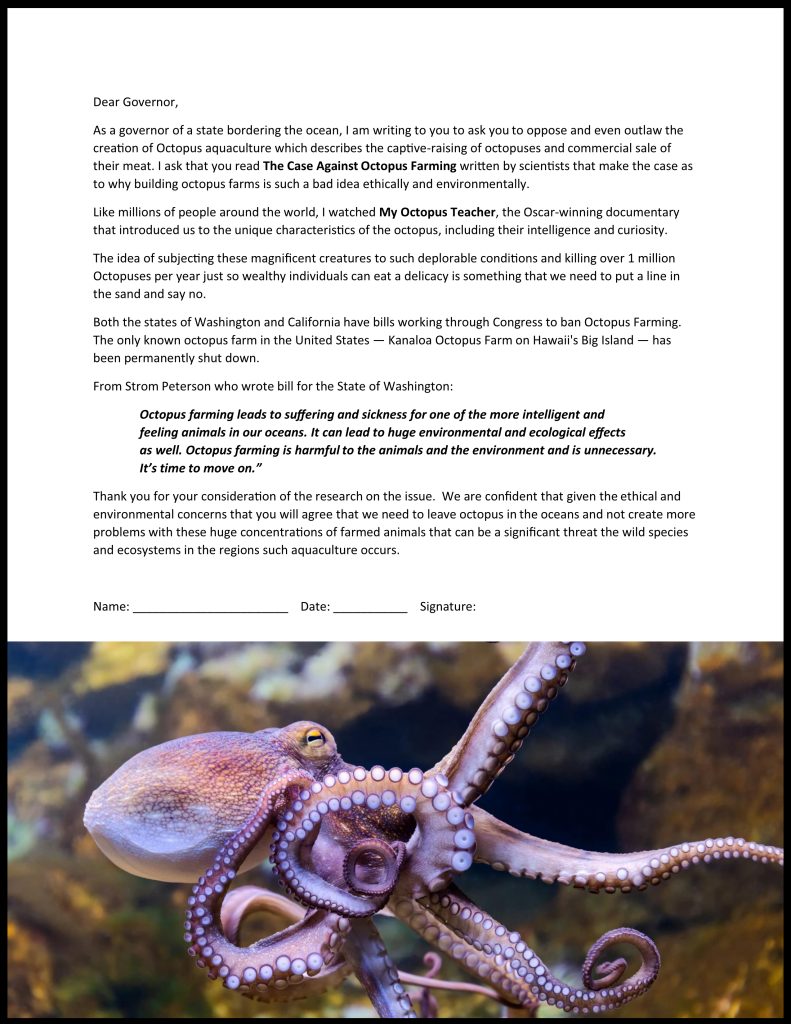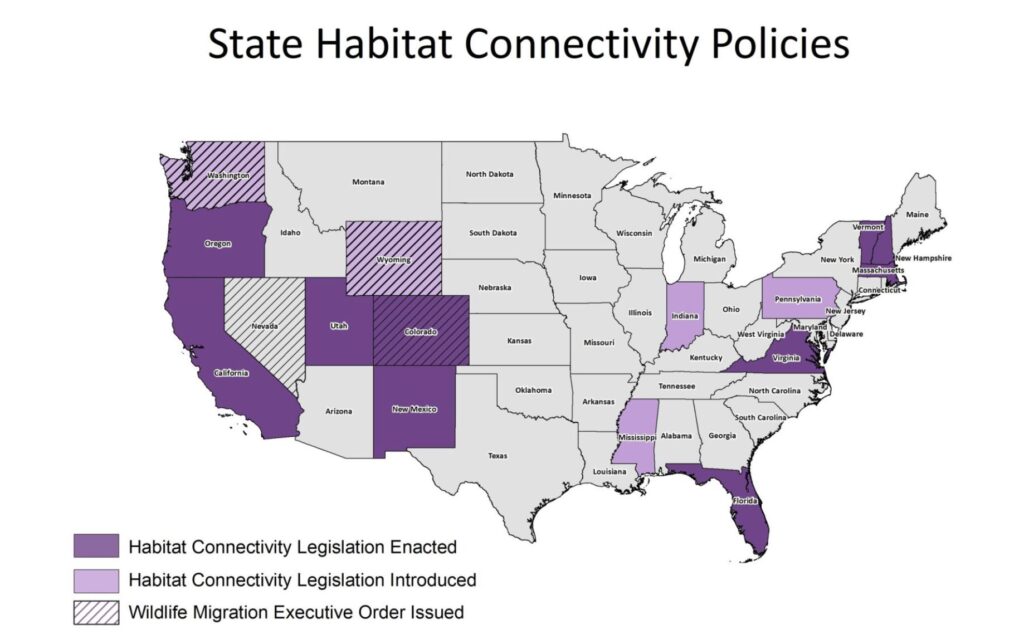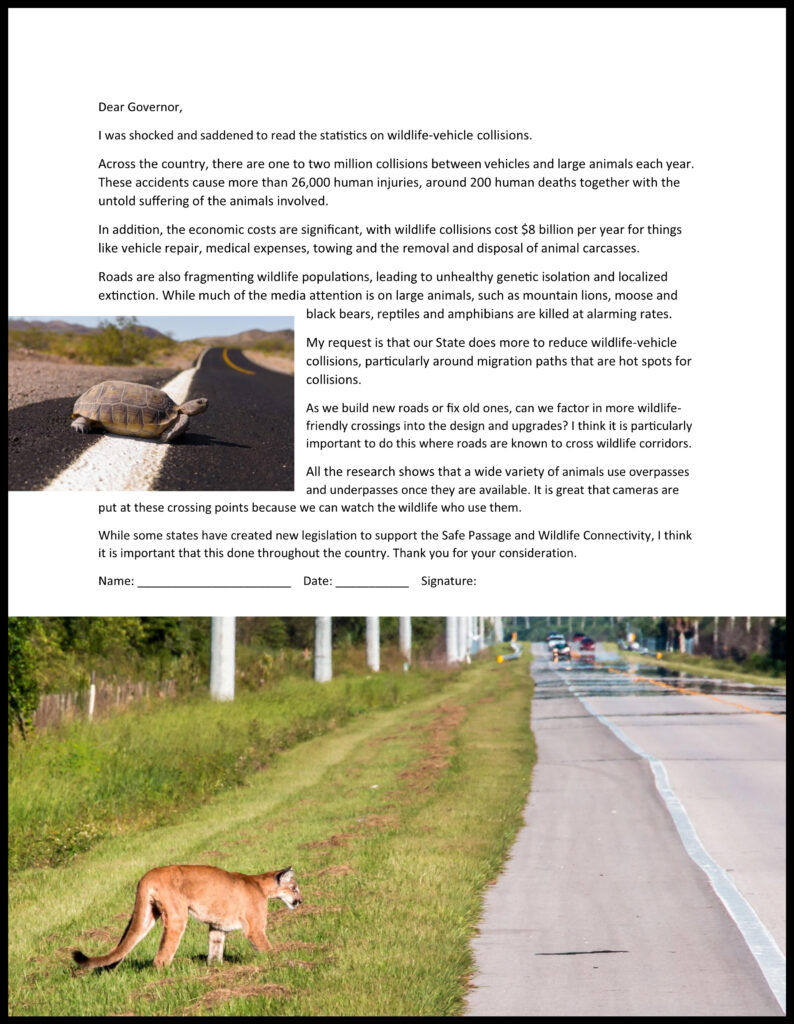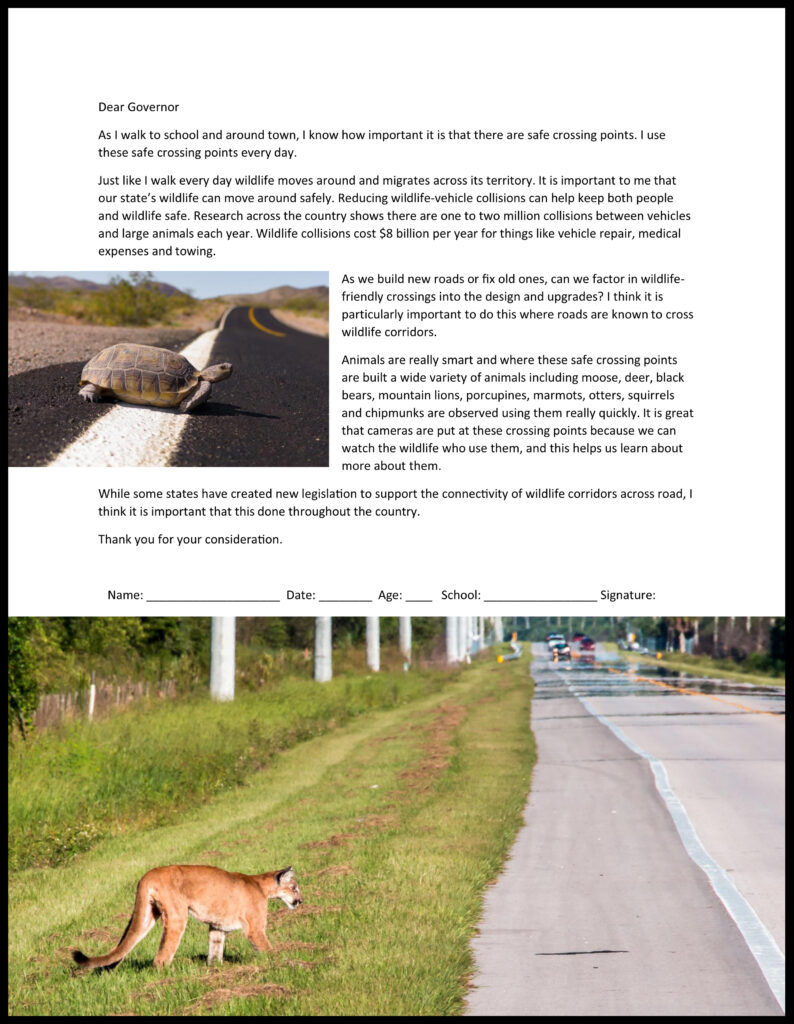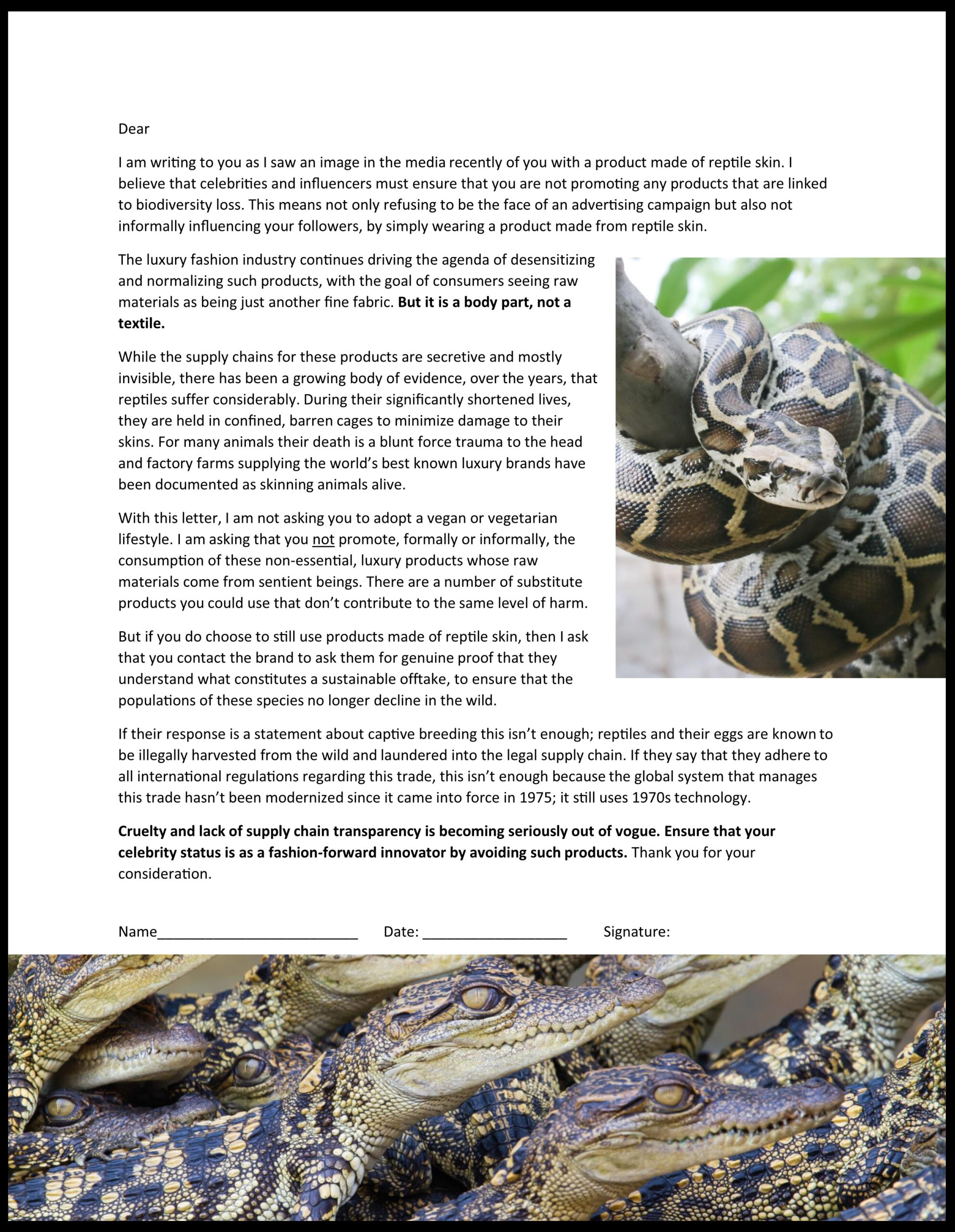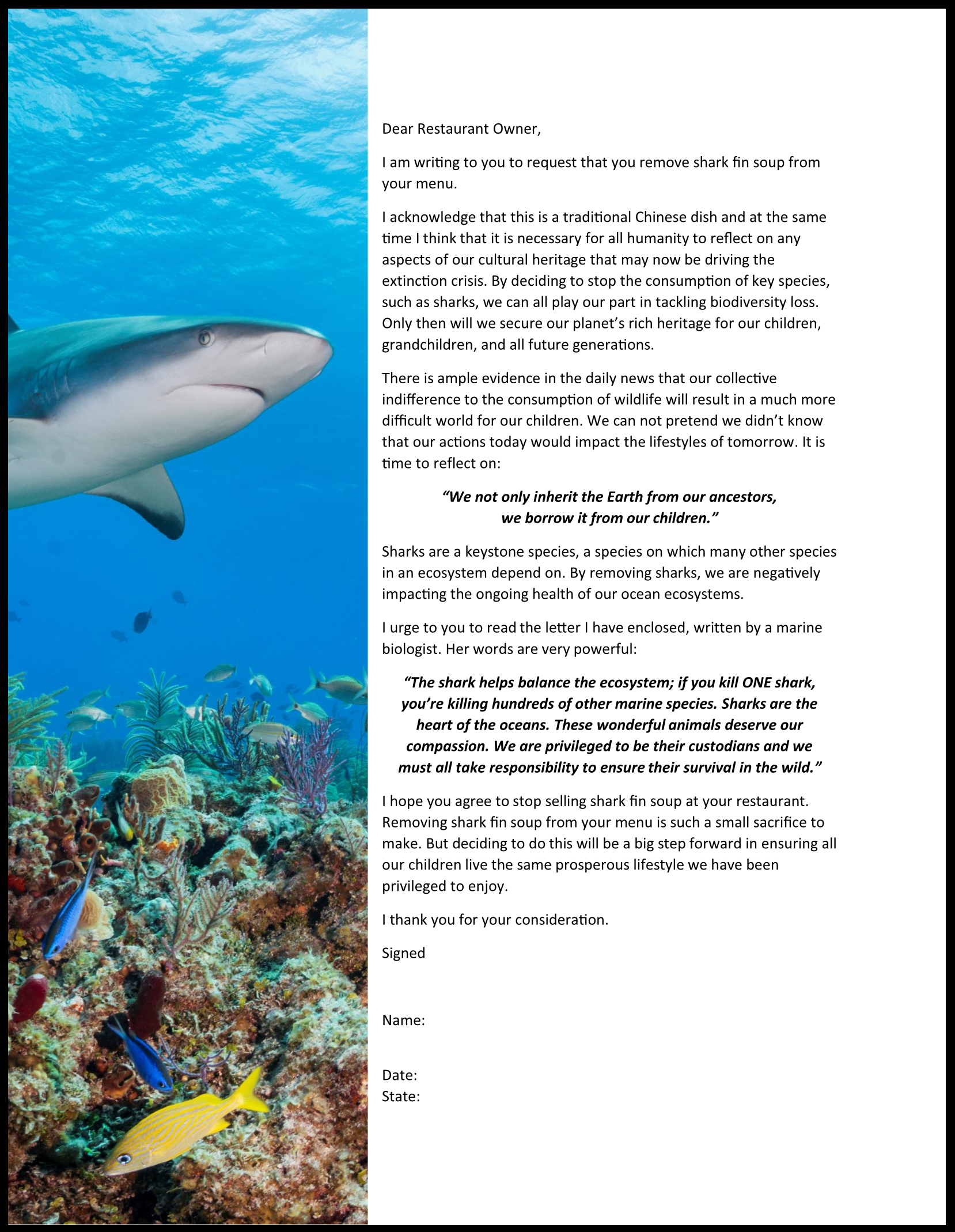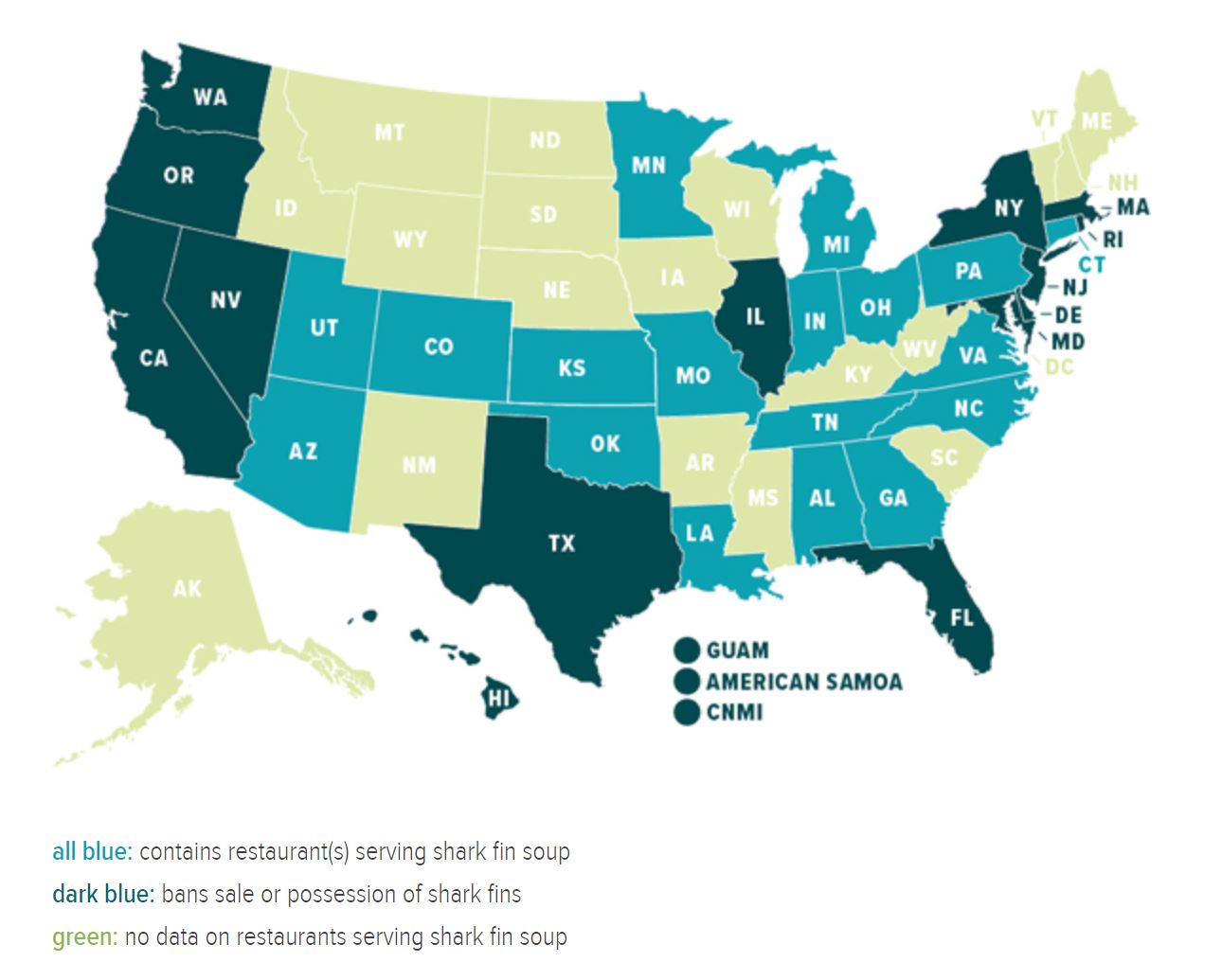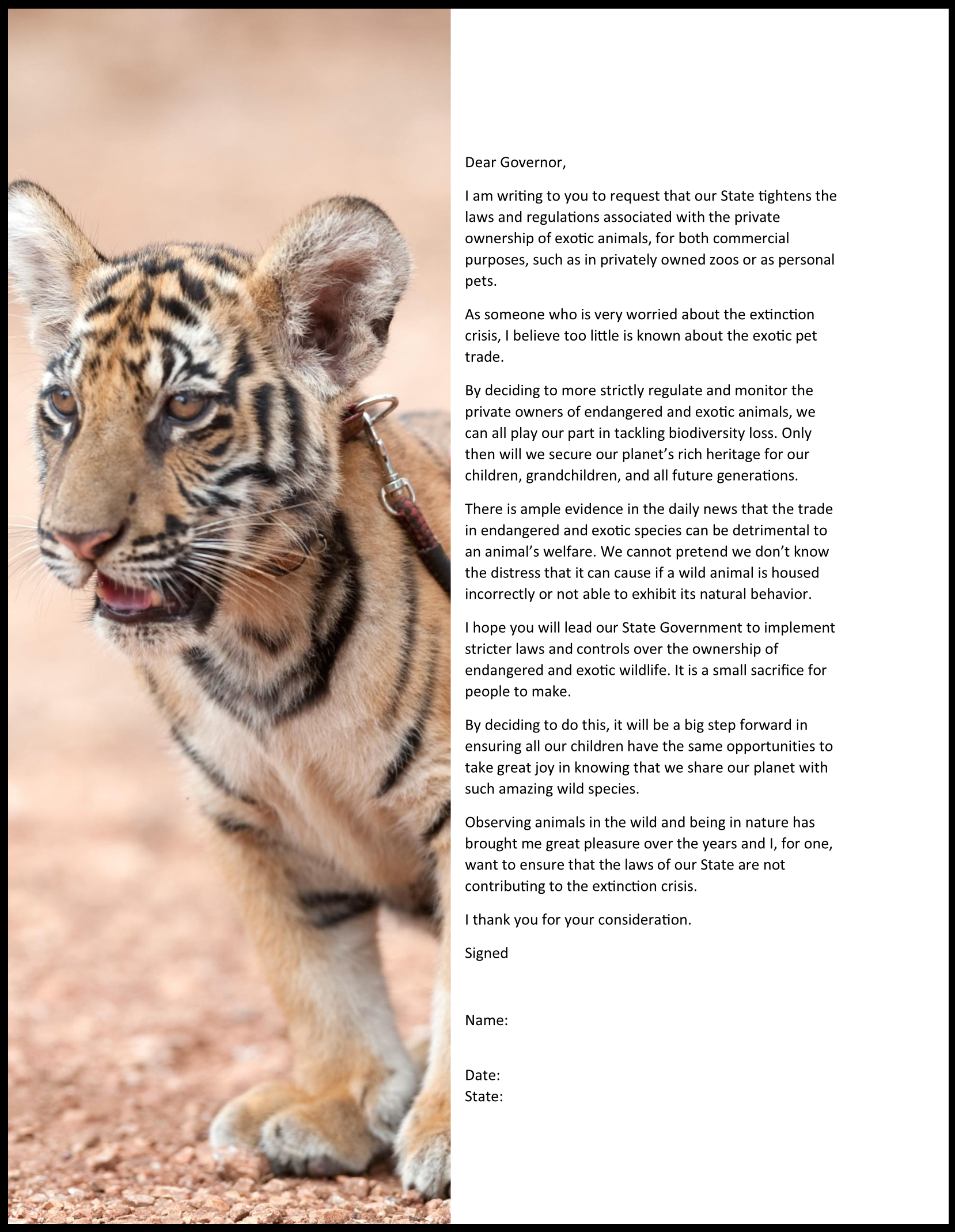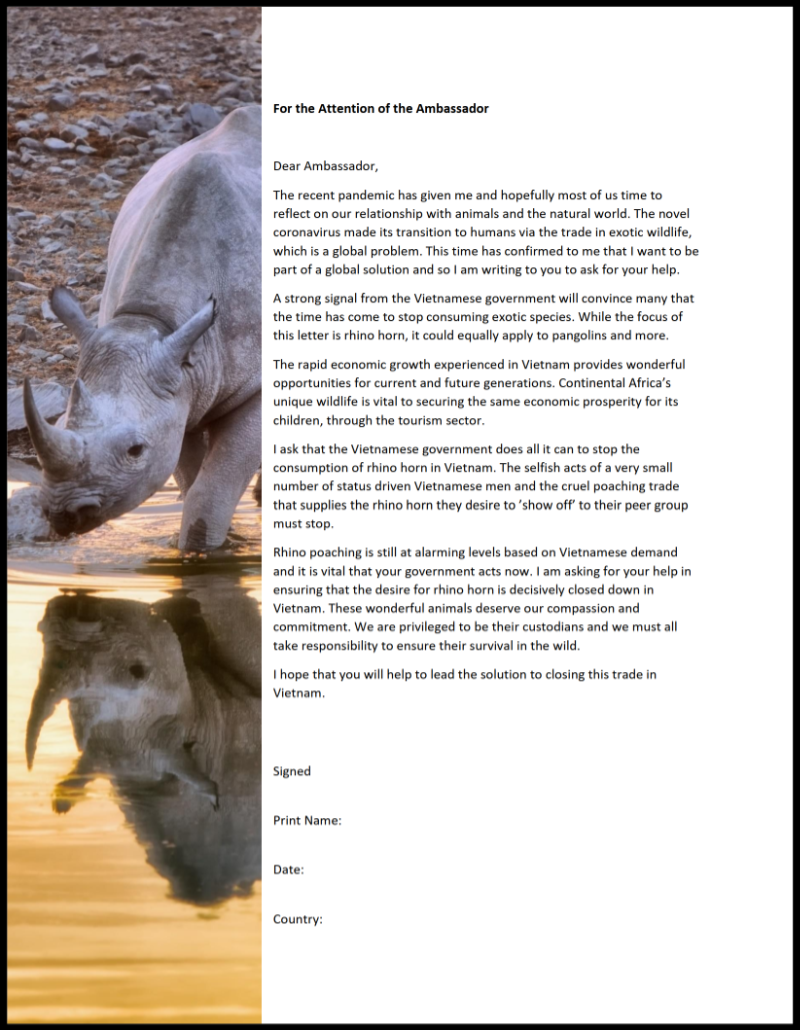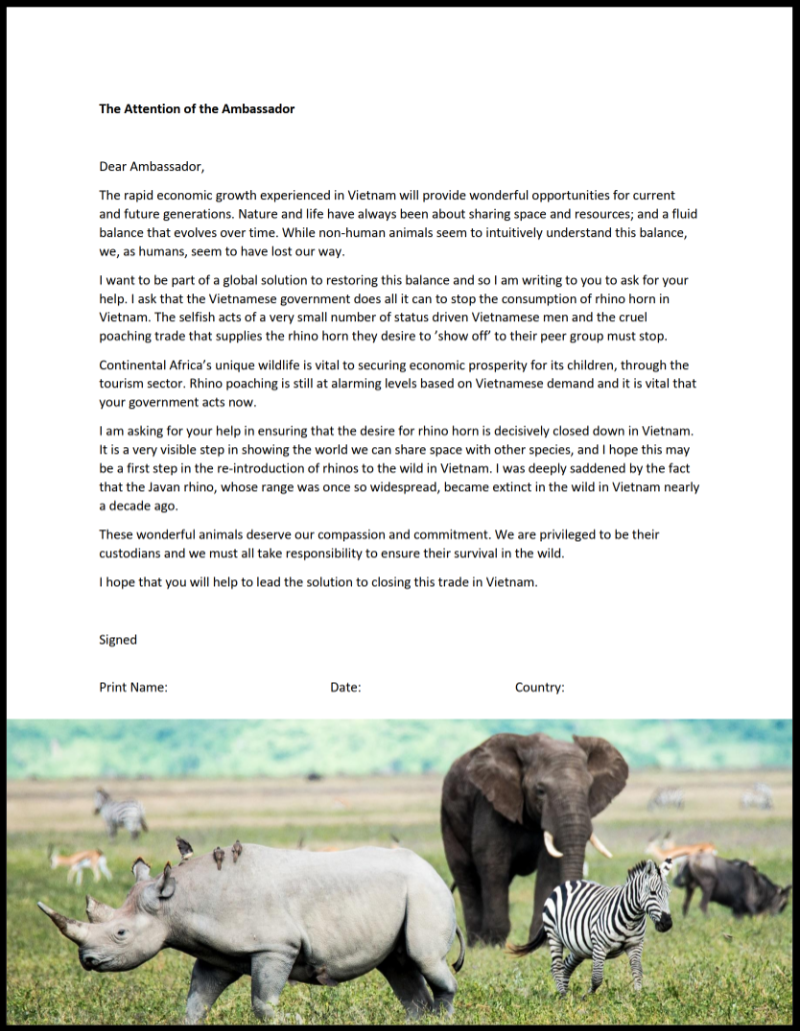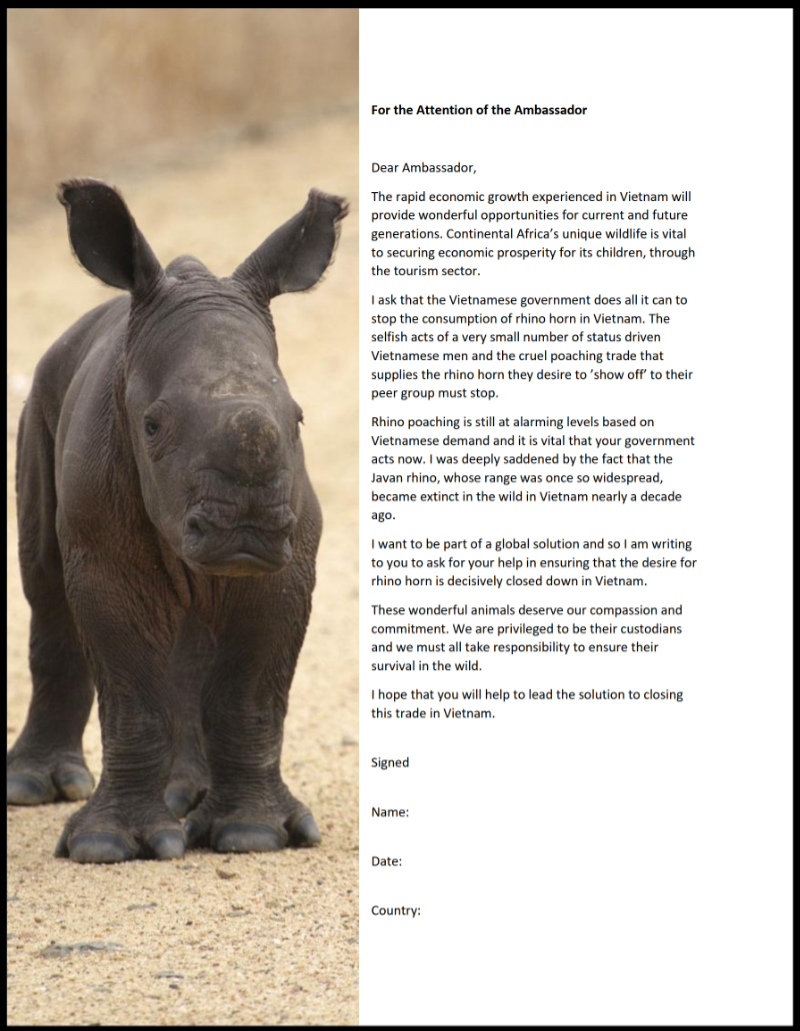“That’s one small step for a man, one giant leap for mankind.”
Neil Armstrong
Over the coming months and years, Active for Animals will add ideas to the One Small Step…project page. These will be activities to help you take your first step in to conservation activities. We know that different people connect with certain animals and so we will create a range of campaigns for you to get involved with no matter what species you love.
To start with, why not become an Octopus Ambassador or a Safe Wildlife Passage Ambassador, Reptile Ambassador, a Shark Ambassador, an Ambassador for Exotic Cats or a Rhino Ambassador?
Become An Octopus Ambassador
Discussions about developing an octopus farming industry have raised deep concerns over the welfare of these intelligent, playful, sentient creatures.
In recent months, an international initiative saw 760,000 people added their names to a petition calling for a global ban of octopus farming. Signatories argued rearing normally solitary octopuses together in large tanks would be “torture on an industrial scale”. Octopuses live much of their time in at a depth that means their surrounds are dark. Under farmed conditions, octopuses would be held in huge communal tanks and at times under constant light. The key markets for octopus include the USA, in addition to South Korea and Japan. So it is critical that US lawmakers work toward banning the practice before it even starts.
Jonathan Birch, associate professor at the London School of Economics, led a review of more than 300 scientific studies which he says shows that octopuses feel pain and pleasure. It led to them being recognized as “sentient beings” in the UK’s Animal Welfare (Sentience) Act 2022. Prof Birch and his co-authors were “convinced that high-welfare octopus farming was impossible” and the UK government “could consider a ban on imported farmed octopus” in future.
Dr Elena Lara, research manager at Compassion in World Farming said, “These animals are amazing animals. So to put them in barren tanks with no cognitive stimulation, it’s wrong for them”. She continued, “[This] actions are purely commercial, it doesn’t mean that fishermen will stop fishing [octopuses].”
Anyone who has watched the 2021 Oscar-winning documentary – My Octopus Teacher – will appreciate that this should be stopped.
My Octopus Teacher, follows the story of Craig Foster, who in 2018 began free-diving in a cold underwater kelp forest at a remote location, near Cape Town, South Africa. He met a curious young octopus that captured his attention. The film shows Foster’s growing relationship with the octopus as he follows her around for nearly a year. They form a bond where she plays with Foster and allows him into her world to see how she sleeps, lives, and eats. Foster describes the effect of this mentorship-like relationship the octopus provided him, teaching him a lesson on the fragility of life and humanity’s connection with nature.
With Active for Animals One Small Step campaign, we aim to foster a stewardship mindset – compassion to take care of wildlife will help minimize future risks for us all. We hope you will consider becoming an Octopus Ambassador, and call on your political representative to help ban the farming of this amazing species.
Become A Safe Wildlife Passage Ambassador
Mountain lion P22 has become known as the cat that changed America. Since he was first spotted in 2012, when he was estimated to be two years old, he captivated many hearts and gained significant media attention and triggered numerous books, television programs and works of art. Sadly P22 was euthanized in December 2022, after being found with injuries including skull fractures, injuries to his right eye, skin injuries, and herniation of abdominal organs into his chest, most likely caused by a collision with a vehicle.
P22’s survival for a decade in the heart of Los Angeles revitalized interest and efforts to protect America’s remaining wildlife; one key element is to reduce wildlife-vehicle collisions, particularly around migration paths that are hot spots for collisions.
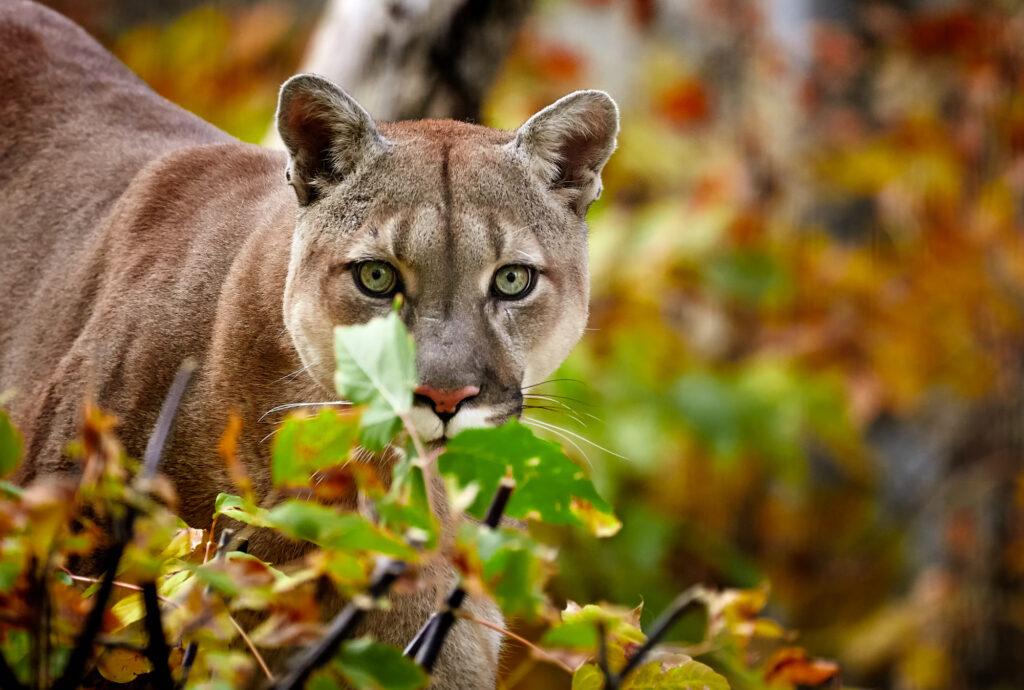
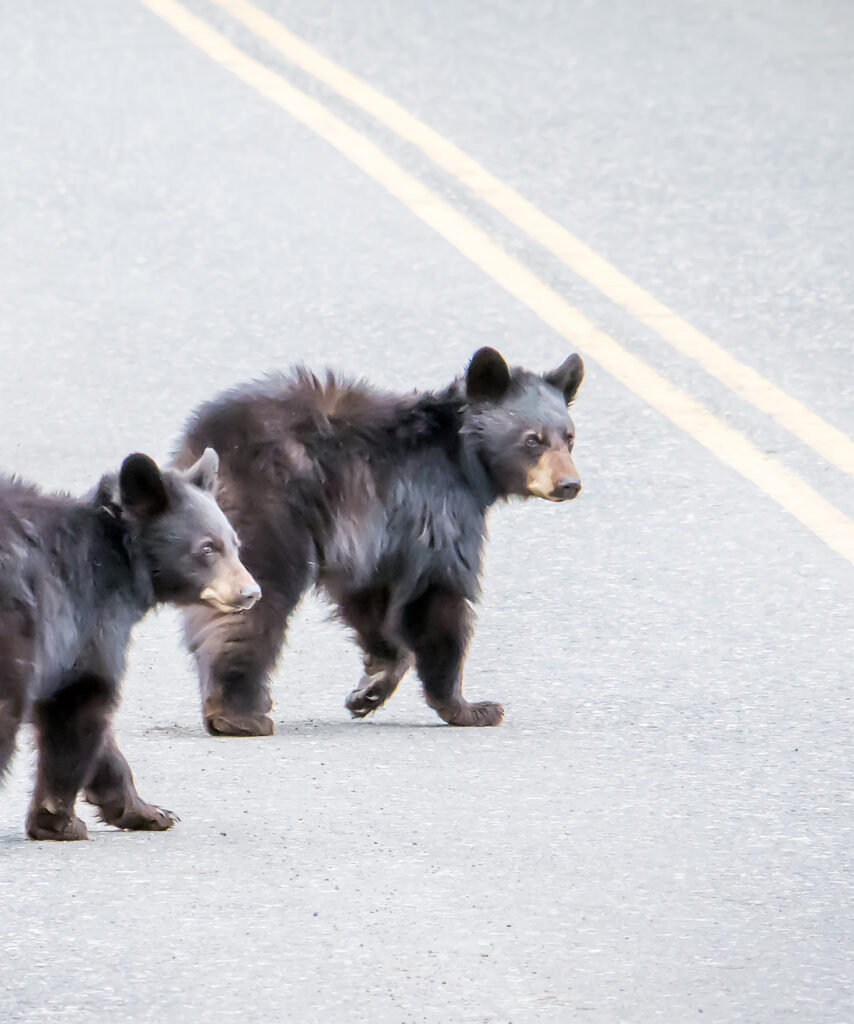
- Across the country, there are one to two million collisions between vehicles and large animals each year.
- These accidents cause more than 26,000 human injuries and about 200 human deaths.
- Wildlife collisions cost $8 billion per year for things like vehicle repair, medical expenses, towing and the removal and disposal of animal carcasses.
- Changes to the climate result in wildlife moving in search of cooler conditions means that more species are contending with busy roads.
- Roads are fragmenting wildlife populations, leading to unhealthy genetic isolation and localized extinction.
- While much of the media attention is on large animals, such as mountain lions, moose and black bears, reptiles and amphibians are killed at alarming rates.
All this means that environmentalists and transport officials agree that there is a need for wildlife crossing infrastructure countrywide. Add to this the extreme weather events which have damaged road infrastructure in recent years. All of this means that significant investments are now happening countrywide to renew our road networks. As a result, there is no better time for building wildlife safe passage infrastructure.
In 2022, states across the country passed legislation to take advantage of historic, new federal funding for wildlife crossing structures. Check out this great map from the Center for Large Landscape Conservation, showing which states have enacted policies to reduce wildlife-vehicle collisions and/or improve habitat connectivity.
Active for Animals most recent One Small Step campaign is to ask you to become a Safe Wildlife Passage Ambassador.
Please download the letter Active for Animals has created and sign and send to your states’ governor to ask that they become a part of the Safe Passage and Wildlife Connectivity project.
There is a fantastic body of work that prove these programs are effective and the investment pays off, keeping everyone safe, both people and animals. We need more countrywide.
For this project we have created a second letter for schools. Wildlife monitoring cameras are used on both overpasses and underpasses and the camera footage is hugely popular and going viral. This is a great way to learn about how to live with wildlife. Generations become disconnected from wildlife and the natural world; by 2020 in the USA 83.6% of the population lived in an urban setting. How can we reconnect people to wildlife and the natural world as urbanization continues to grow?
With Active for Animals most recent One Small Step campaign, we aim to foster a stewardship mindset – compassion to take care of wildlife will help minimize future risks for us all. The Safe Wildlife Passage Ambassador Schools project is a great way to build awareness of how to invest in real and pragmatic solutions. We hope that your school gets involved.
School Project Letter
Become A Reptile Ambassador
The use of snake skins for the commercial production of leather only started in the mid-1920s, but by 1990 a regional review of supply-side countries in Asia found that python populations in several countries had already declined. The 1990 report discussed that collecting pythons for the skin trade had adversely affected populations and also found evidence that the true value of skins was ‘substantially under-declared’. Step forward 30 years and sadly all the same problems remain, even though report after report has reaffirmed the conclusions of the 1990 research.
Research published in 2020 found that between 2003 and 2013, luxury fashion brands had thousands of exotic leather goods seized by U.S. law enforcement, nearly 70% of which were exotic leather products. Reptiles accounted for 84 percent of all items, many of which were belts, watch bands, wallets, shoes, and purses. According to the official seizure records Ralph Lauren accounted for 29% of the seized items, Gucci 16%, Michael Kors 10%, Jil Sander 6% and Coach 5%. Gucci had the highest number of individual seizure incidents followed by Yves Saint Laurent; other designers who has product seized included Diane von Furstenberg, Chanel, and Versace.
This research has been hard to do in more recent years because the U.S. Fish and Wildlife Service after freely releasing this data for decades stopped doing so in 2014. As a result, the Center for Biological Diversity, with support from Harvard Law School’s Animal Law & Policy Clinic, is suing the U.S. Fish and Wildlife Service for failing to release data on the wildlife traded across U.S. borders. The United States is a major importer of wildlife, bringing in an estimated 225 million live animals and 883 million dead specimens annually for the pet trade, décor, fashion, food, research and trophy hunting more.
If there is one species that shows that the regulation of the legal trade doesn’t work in its current form it’s the Siamese Crocodile. These crocodiles were once widespread throughout much of mainland Southeast Asia. From the 1950s commercial hunting for skins and then the collection of animals to stock crocodile farms, again to supply the international skin trade, means the species has disappeared from 99% of its former range. CITES was set up to protect the likes of the Siamese Crocodile, which has been listed on CITES Appendix I since the convention came into force in 1975. In 1992 the IUCN declared the Siamese Crocodile to be effectively extinct in the wild. It is estimated that there are fewer than 1,000 adult individuals surviving in the wild across its historic range, making the Siamese Crocodile one of the world’s rarest reptiles.
In 2021, conservationist were excited when eight Siamese crocodile hatchlings were photographed in the wild in Cambodia. The good news story echoed around the world. What the media, regulator (and the luxury leather industry) are NOT talking about is that the massive trade in captive bred Siamese crocodiles has continued unabated for 50 years. In the years 2010-2019, 1,430,000 were exported from Thailand alone, a country where it is estimated that there are only 200 Siamese crocodiles alive in the wild. A 2013 submission to CITES CoP by Thailand highlights that there are 836 crocodile farms registered with the management authority of Thailand. Among them there are 23 farms registered as a captive breeding operation that breed Appendix I species in captivity for commercial purposes; it doesn’t mention conservation. Viet Nam is the next biggest exporter with 576,269 and then Cambodia 177,899; for comparison, fewer than 250 mature individuals are thought to be living in the wild in Cambodia. This is a very clear example of how the legal trade has not helped to save these species in the wild.
Get Active for Animals by becoming a Reptile Ambassador. If you see an influencer wearing reptile skin, send them the letter and let them know it’s time this trade was either cleaned up or stopped.
Become A Tiger Ambassador
Expanding on Active for Animals’ ‘Rhino Ambassador’ campaign, we have created a way for our supporters to take one small step to help tigers and all exotic animals that can be privately owned in the USA.
Undoubtedly, the Tiger King documentary has made more Americans aware of our country’s lax regulations and ownership laws when it comes to exotic animals.
It is estimated more tigers live in captivity in the USA alone than the 4 thousand tigers left in the wild. The key word is estimated, because trade and ownership of exotic animals, including tigers, is opaque.
Which is why Active for Animals has created a letter for our supporters to send to their State Governor, requesting the laws and regulations about owning exotic animals, for commercial purposes or personal pets, be strengthened.
This will be an ongoing campaign for Active for Animals, as our research has shown that too few people are aware of the scale of exotic animal ownership in the USA.
By tackling lax ownership laws in the USA we not only ensure that we are not contributing to biodiversity loss, we can also ensure exotic pets don’t become invasive species damaging our country’s unique and precious ecosystems. Exotic pet that escape or are released into the wild because the owner isn’t interested in them any more are causing problems for fragile ecosystems.
Become A Rhino Ambassador
As you may know, the demand for rhino horn in Vietnam is high and this desire in Vietnam is driving rhino poaching. Wherever you are in the world, you can become a Rhino Ambassador and one of the easiest and most effective ways of showing your support for rhinos is to send a letter to your local Vietnamese Embassy asking for their help to close down the trade.
To help Active for Animals has done two things. The first is to provide you a link to the contact details of all the Vietnamese Embassies Worldwide. The list provides the address and phone information. We recommend that you don’t sent an email, as they can be more easily ignored. To stand out, the best thing to do is to send a letter by post. But if you don’t want to send your letter by post, then send an email.
The second thing we have done is create three sample letters that you can use, if you are not sure what to write.
Join forces with your family and friends, or maybe you could get your class or school to also send letters.

